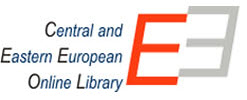PROBLEMS DISCONTINUITY ON THE FIRST LEVEL OF THE SCHOOL SYSTEM
Keywords:
discontinuity, kindergarten, school, social relationsAbstract
In this paper, the author points out the problems that arise as a consequence of the discontinuity between kindergarten and school discusses, some aspects of discontinuity with which the children often face the transition from one level of education to another and provide guidelines to overcome them.
Downloads
References
Arsić. Z. (2012). Basic assumptions and conditions to overcome discontinuities between preschool and primary level of education, Proceedings of the Seventh Symposium”Еducator in the 21st century,”Our creation, College of Professional Studies educators Aleksinac, p. 20-32
Brostrom, S. (2003). Problems and barriers in children`s learning when they transit from kindergarten to kindergarten class in school. European Early Childhood Research Journal, Research Monograph Series 1
Colić, V. Nišević, S. (2011). Admission to the school - from the viewpoint of a child, Pedagogy 2, vol 66, no. 3, p. 450-456.
Glasser, W. (2005). High-quality schools - schools without coercion, Zagreb: Educa
Vujaklija, M. (2003). Glossary of foreign words and phrases. Belgrade: Prosveta
Docke, S., & Perry, B. (2007). Transitions to School. Perceptions, expectations, experiences. Sydney: UNSW Press.
Edit, A. (2003). The continuity between the levels of the education system, Norma, Vol 9, p. 55-64.
Edit, A. (2004). Overcome the discontinuity of preschool and primary education, Norma, vol. 10. No. 1-2, p. 23-36.
Kakavulis, A. (1998). Continuity in education in early childhood: the transition from preschool to school. Teaching and Education, Vol. 47, No. 1, p. 78-90.
Kamenov, E. (1997). Methods and methodological instructions for Model B Tractor preschool education for children from three to seven years, Novi Sad - Belgrade Department of Pedagogy, Faculty of Philosophy in Novi Sad and community colleges for the education of teachers of the Republic of Serbia.
Кamenov, E. (1982). Experimental programs for educating early, Institute for the handbook and teaching resources Belgrade.
Kamenov, E. (2002). Preschool Pedagogy (Book Two), and the Department of texts for teaching aid, Belgrade.
Kamenov, E. (2006). Educational work in the preparatory group of kindergarten theory and practice, Dragon, Novi Sad.
Kopas-Vukašinović, E. (2006). The role of play in the development of preschool and early school age, Journal of the Institute for Educational Research, No.1, p. 174-189.
Kopas – Vukašinović, E. (2010). The educational work in preschool and school - achievement of continuity in the selection and implementation of tasks, a New school, No.VII, p, 176-184, Faculty of Education, Bjelinja
Kopas – Vukašinović, E. (2011). The continuation of the system of institutional preschool and primary education, Pedagogy, No.2, p. 272 – 281.
Levine, M. (2005). Every child is smart in their own way, Belgrade, Power of books.
Miljak, A. (2007). Theoretical Framework of Co-construction of Curriculum of Early.
Miljak, A. (2009). Children living in vtriću, SM Circulation doo, Zagreb.
Marjanovic, A. (1977). Linking preschool and elementary education, preschool child, No.1, 3-15.
Petrović - Sočo B. (2007).”The context of the institution of early education - holistic approach.”Zagreb: Small Professor.
Rinaldi, C. (1998). Projected Curriculum Construced Through Documentation – Progettazione. In: Edwards, C., Gandini, L., Forman, G. (eds), The Hundred Languages of Children. London: Ableh Pub. Connedticut, p. 99-113.
Stanisavljević - Petrović, Z. (2011). Discontinuity in education between kindergarten and school, Faculty of Philosophy, Niš.
Slunjski, E. (2006). Creation of prekindergarten curriculum in a learning organization, Little Professor, Zagreb, Teacher Training College in Čakovcu.
Taguchi, H. L. (2010). Going Beyond the Theory, Practice Divide in Early Childhood Education - Introducing an interactive pedagogy. London and New York: Routledge.
Published
How to Cite
Issue
Section
License
Copyright (c) 2013

This work is licensed under a Creative Commons Attribution-NonCommercial-NoDerivatives 4.0 International License.























